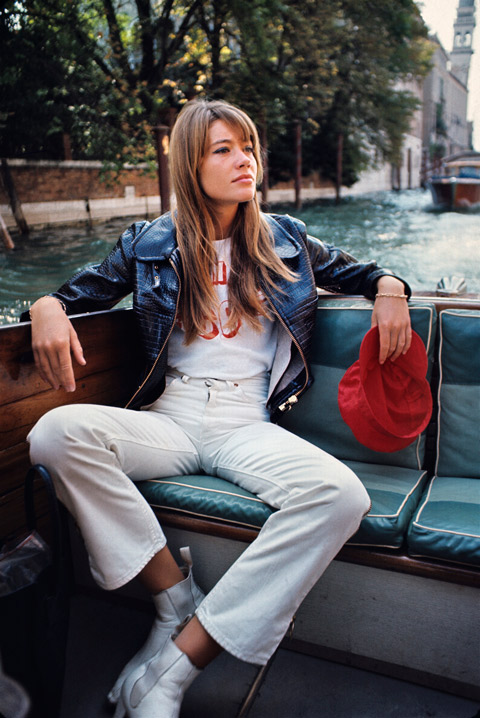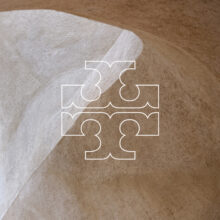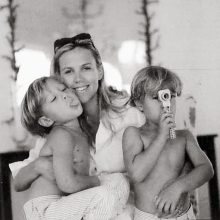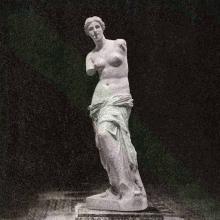
Think Sixties. Now think of the music stylings of the era. Chances are your mind zeroes in on London’s Youthquake and the British invasion — hello, Beatles. But did you know France had a Swinging Sixties moment of its own? Here, more on the music movement known as Yé-Yé.
The Name Game
The Yé-Yé name boils down to “yeah, yeah” in French, nodding to that Sixties Brit rock sound. Sociologist Edgar Morin was said to have coined the term in an article he wrote for Le Monde on the country’s new youth movement.
And the Names to Know
No intro to Yé-Yé is complete without a roster of its biggest stars: Sylvie Vartan, France Gall, Chantal Goya, Jacqueline Taieb, Sheila and Françoise Hardy (above), whose debut album was released in the U.S. as The Yeh-Yeh Girl from Paris!
The Y Factor
Yé-Yé was largely fueled by female performers — see above for cases in point — but Serge Gainsbourg proved a major presence, too. He produced and wrote hits for a number of these girls, from Gall to Brigitte Bardot.
The Sound
Punchy, light, upbeat and flirtatious. Playful, catchy. Coyly suggestive (not outré sexy). Think Go-Go and “She Loves You, Yeah, Yeah, Yeah” with a Gallic twist. But don’t just take our word for it. Listen to some of the Yé-Yé classics, like Hardy’s “Tous les Garçons et les Filles” and “Laisse Tomber les Filles” by Gall.
The Cable Treatment
Yé-Yé meets Mad Men. When Jessica Paré, as Megan Draper, coquettishly belted out “Zou Bisou Bisou” on the show’s season premiere in 2012, it got everyone talking about retro French Pop and introduced a whole new audience to that Gillian Hills’ hit from 1960. The song became so popular — it even trended on Twitter — that AMC went on to release its own version as a single.
More to explore in Music
-
 Music
9.9.24
Spring/Summer 2025: The Soundtrack
Music
9.9.24
Spring/Summer 2025: The Soundtrack
-
 Music
9.11.23
Spring/Summer 2024: The Soundtrack
Music
9.11.23
Spring/Summer 2024: The Soundtrack
-
 Music
5.5.23
Mother’s Day Mixtape 2023
Music
5.5.23
Mother’s Day Mixtape 2023
-
 Music
2.13.23
Fall/Winter 2023: The Soundtrack
Music
2.13.23
Fall/Winter 2023: The Soundtrack
-
 Music
9.13.22
Spring/Summer 2023: The Soundtrack
Music
9.13.22
Spring/Summer 2023: The Soundtrack
